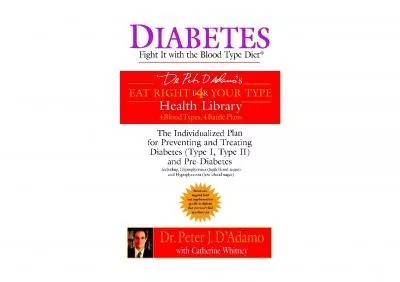PPT-Intermittent Fasting and Type 2 Diabetes
Author : beatrice | Published Date : 2024-03-13
Michael Itschner II PharmD Candidate Contents Scope of this presentation Intro in biochemistry Randomized control trials Systematic review Student assessment
Presentation Embed Code
Download Presentation
Download Presentation The PPT/PDF document "Intermittent Fasting and Type 2 Diabetes" is the property of its rightful owner. Permission is granted to download and print the materials on this website for personal, non-commercial use only, and to display it on your personal computer provided you do not modify the materials and that you retain all copyright notices contained in the materials. By downloading content from our website, you accept the terms of this agreement.
Intermittent Fasting and Type 2 Diabetes: Transcript
Download Rules Of Document
"Intermittent Fasting and Type 2 Diabetes"The content belongs to its owner. You may download and print it for personal use, without modification, and keep all copyright notices. By downloading, you agree to these terms.
Related Documents




![[READ] My 8-Week Intermittent Fasting Challenge: A Journal And Guided Logbook For Intermittent](https://thumbs.docslides.com/881600/read-my-8-week-intermittent-fasting-challenge-a-journal-and-guided-logbook-for-intermittent-fasting.jpg)









